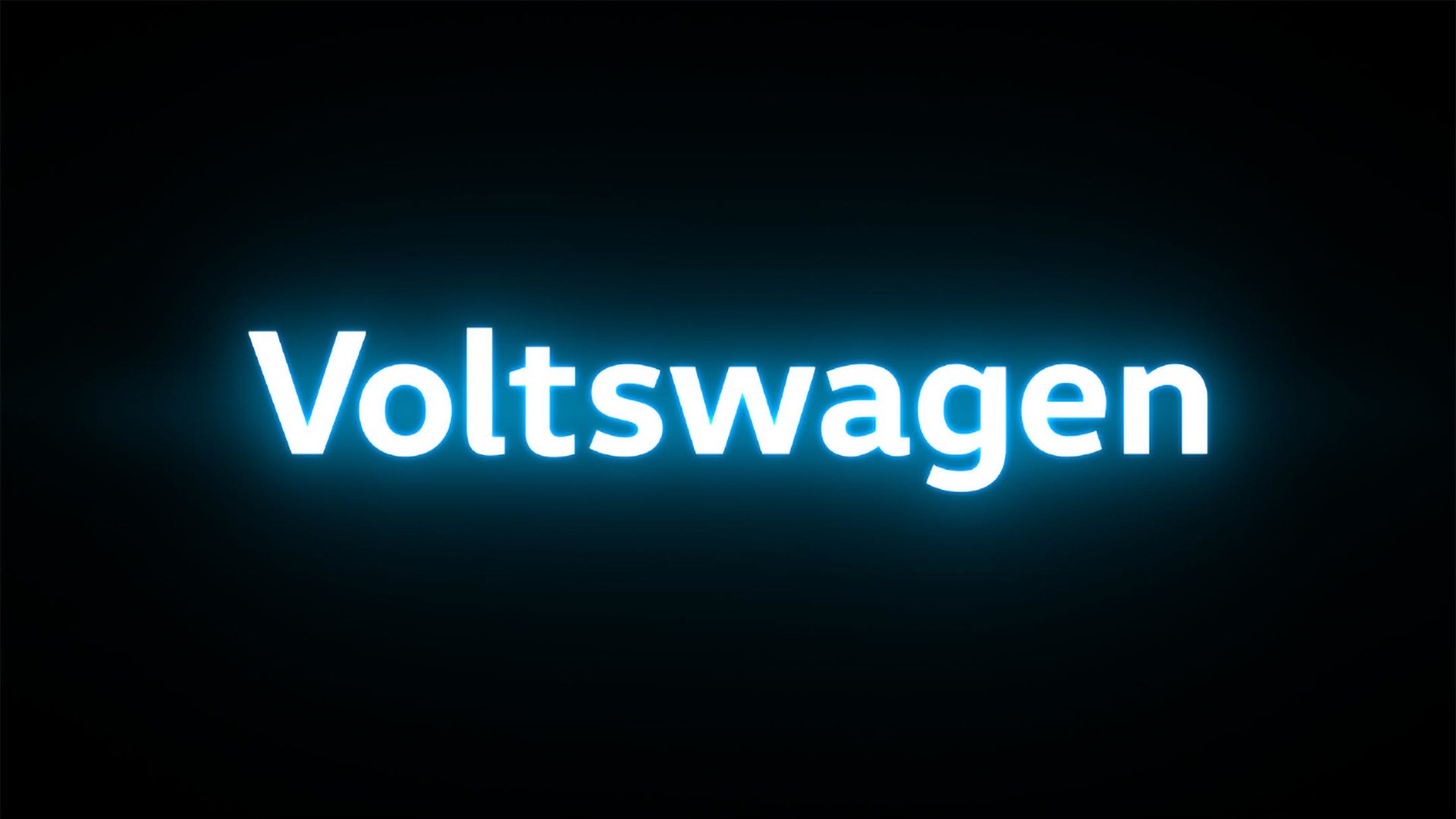Update (2021-03-30 @ 6 p.m. ET): I'm all for admitting to being fooled by a clever prank. Of course, the operative word there is clever. It indeed now looks like this was an April Fools' Day prank. In March.
Update (2021-03-30 @ 1 p.m. ET): There are now conflicting reports over whether or not this is, indeed, a poorly executed publicity stunt, with the Wall Street Journal reporting it as nothing more than a joke. However, CNBC, which originally broke the news about purported plan, and Road & Track both quoted Volkswagen Group of America sources claiming it to be genuine.
I’m both a fan and a frequent practitioner of wordplay.
Whether it’s combining two words into one – sometimes, I’ll suggest a weekend brunch just to say the word brunch – or inserting alliteration wherever possible, I’m constantly working with words to find the best flow. That’s the side of me that appreciates the Volkswagen Group’s apparent plan to rename its American (and presumably Canadian) operations Voltswagen. Yes, you read that right. No, it’s not an April Fools’ Day joke.
I also respect the sentiment VW’s trying to spread as it dives headlong into an all-electric future. But this cutesy name seems the perfect fodder for an expensive ad campaign – not an overhaul to its entire image. Let’s not forget that the Volkswagen name carries an awful lot of equity. It consistently ranks in the Top 50 of Interbrand’s Best Global Brands report, rubbing elbows with the likes of Visa, eBay, and Adidas, according to the most recent list. I can’t see that sportswear brand renaming itself Adidash anytime soon in an ode to its running shoes. Why? Because it’s a bad idea.
According to an official press release from the automaker’s American operations, “the new name and branding symbolize the highly-charged forward momentum Voltswagen has put in motion, pursuing a goal of moving all people” under electric propulsion.
Except apparently it was, indeed, just a marketing gimmick, with the Wall Street Journal reporting that executives in Germany are adamant it was an April Fools' Day joke gone wrong. That is, an April Fools' Day joke in March.
If true, it strikes me as a massive overcorrection from its Dieselgate days. The automaker has been working hard to clean up its image ever since the scandal that revealed it had for years been using specially programmed software to emit less nitrogen oxides only during regulatory testing. That left millions of diesel-powered vehicles around the globe to pump out dozens of times more dangerous emissions in real-world driving.
Offices were raided, executives were criminally charged, and the company has paid tens of billions of dollars in penalties and buybacks. In Canada alone, the company pleaded guilty to some 60 charges under the Environmental Protection Act and was fined nearly $200 million. And that doesn’t include the costs associated with the trade-ins, buybacks, and approved fixes for the undisclosed number of affected diesel vehicles sold here. (Full disclosure: I own a 2014 Golf TDI wagon that I purchased after it was made compliant with an emissions fix.)
The scandal was disingenuous and downright deceitful, and certainly left a stain on the brand’s public image. But this isn’t the Tide-pen solution Volkswagen is hoping it will be. Instead, it’s the automotive equivalent of Beggin’ Strips. Sure, it’s cute and clever; but it’s also kind of cheesy. That might work for a $12 bag of dog treats, but it’s a stretch for what are supposed to be sophisticated electric vehicles people are proud to park in their driveways.
Then there’s the separate issue of the seven or so gas-powered models that will fall under the Voltswagen branding for the foreseeable future. To combat this, the company plans to lean on its historic VW logo, with the wordmark branding reserved exclusively for electric vehicles. Talking about putting the cart before the horse. Or would that be corse?

